Filter by
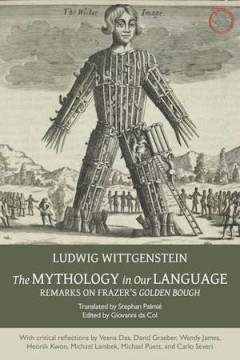
No Bicycle, No Bus, No Job: The Making of Workers’ Mobility in the Netherla…
For working people, the cost of getting to work, in terms of time and expense, is a crucial aspect of daily life. In the twentieth century, people’s opportunity to travel increased. This did not, however, apply to everyone. The absence of affordable housing near job locations combined with the lack of safe, efficient, and affordable mobility options aggravated social exclusion for some. No Bi…
- Edition
- -
- ISBN/ISSN
- 9789048556403
- Collation
- -
- Series Title
- -
- Call Number
- -
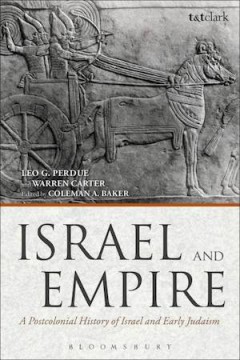
Israel and Empire A Postcolonial History of Israel and Early Judaism
Israel and Empire introduces students to the history, literature, and theology of the Hebrew Bible and texts of early Judaism, enabling them to read these texts through the lens of postcolonial interpretation. This approach should allow students to recognize not only how cultural and socio-political forces shaped ancient Israel and the worldviews of the early Jews but also the impact of imperia…
- Edition
- -
- ISBN/ISSN
- 9780567280510
- Collation
- -
- Series Title
- -
- Call Number
- -
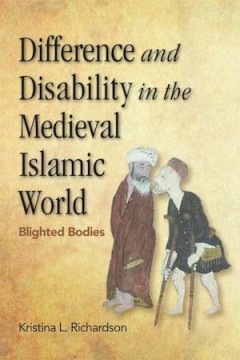
Difference and Disability in the Medieval Islamic World Blighted Bodies
- Edition
- -
- ISBN/ISSN
- 9780748645077
- Collation
- -
- Series Title
- -
- Call Number
- -
- Edition
- -
- ISBN/ISSN
- 9780748645077
- Collation
- -
- Series Title
- -
- Call Number
- -
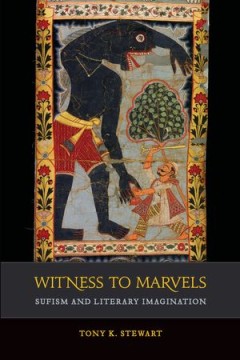
Witness to Marvels
Witness to Marvels traces the development of a unique genre of Sufi-inspired Bengali romances called pir kathas, whose protagonists and plots are wholly fictive. For five centuries these fabulations have parodied indigenous and Hindu textual traditions. Both mimicking and mocking, these parodies adopted a subjunctive tone, exploring a magical world of ‘what-if’. They created an Islam-inflec…
- Edition
- -
- ISBN/ISSN
- 9780520973688
- Collation
- -
- Series Title
- -
- Call Number
- -

West Cotton, Raunds A Study of Medieval Settlement Dynamics AD 450-1450. Exc…
The open area excavation of nearly a half of the small deserted medieval hamlet of West Cotton, Raunds, Northamptonshire has revealed the dynamic processes of constant development in a way that has rarely been achieved on other comparable sites in England. Its origins have been seen to lie in the mid tenth-century plantation of a planned settlement based on regular one-acre plots, which occurre…
- Edition
- -
- ISBN/ISSN
- 9781842177587
- Collation
- -
- Series Title
- -
- Call Number
- -

A Tale of the Unknown Unknowns A Mesolithic Pit Alignment and a Neolithic Ti…
The site of Warren Field in Scotland revealed two unusual and enigmatic features; an alignment of pits and a large, rectangular feature interpreted as a timber building. Excavations confirmed that the timber structure was an early Neolithic building and that the pits had been in use from the Mesolithic. This report details the excavations and reveals that the hall was associated with the storag…
- Edition
- -
- ISBN/ISSN
- 9780000000903
- Collation
- -
- Series Title
- -
- Call Number
- -
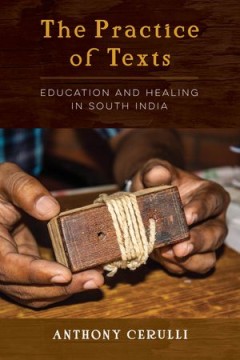
The Practice of Texts Education and Healing in South India
The Practice of Texts examines the uses of the Sanskrit medical classics in two educational institutions of India’s classical life science, Ayurveda: the college and the gurukula. In this interdisciplinary study, Anthony Cerulli probes late- and postcolonial reforms in ayurvedic education, the development of the ayurvedic college, and the impacts of the college curriculum on ways that ayurved…
- Edition
- -
- ISBN/ISSN
- 0520383559,
- Collation
- -
- Series Title
- -
- Call Number
- -
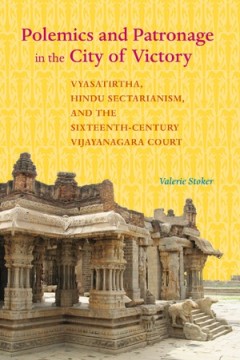
Polemics and Patronage in the City of Victory Vyasatirtha, Hindu Sectarianis…
- Edition
- -
- ISBN/ISSN
- 9780520965461
- Collation
- -
- Series Title
- -
- Call Number
- -
- Edition
- -
- ISBN/ISSN
- 9780520965461
- Collation
- -
- Series Title
- -
- Call Number
- -
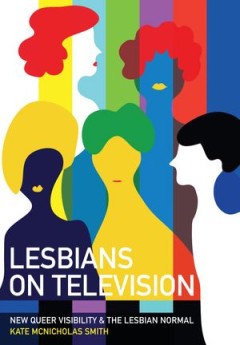
Lesbians on Television: New Queer Visibility & the Lesbian Normal
The twenty-first century has seen LGBTQ+ rights emerge at the forefront of public discourse and national politics in ways that would once have been hard to imagine. Focusing on the small screens of Europe and North America, "Lesbians on Television" maps the contemporary shifts in lesbian visibility within popular media and, from this, extracts a figure of the new 'lesbian normal' that both help…
- Edition
- -
- ISBN/ISSN
- 9781789382815
- Collation
- -
- Series Title
- -
- Call Number
- 30223034 SMI l
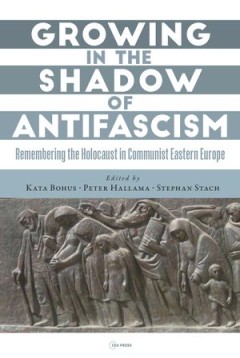
Growing in the Shadow of Antifascism: Remembering the Holocaust in State-Soci…
Reined into the service of the Cold War confrontation, antifascist ideology overshadowed the narrative about the Holocaust in the communist states of Eastern Europe. This led to the Western notion that in the Soviet Bloc there was a systematic suppression of the memory of the mass murder of European Jews. Going beyond disputing the mistaken opposition between “communist falsification” of hi…
- Edition
- -
- ISBN/ISSN
- 9789633864364
- Collation
- -
- Series Title
- -
- Call Number
- 900 GRO g
 Computer Science, Information & General Works
Computer Science, Information & General Works  Philosophy & Psychology
Philosophy & Psychology  Religion
Religion  Social Sciences
Social Sciences  Language
Language  Pure Science
Pure Science  Applied Sciences
Applied Sciences  Art & Recreation
Art & Recreation  Literature
Literature  History & Geography
History & Geography